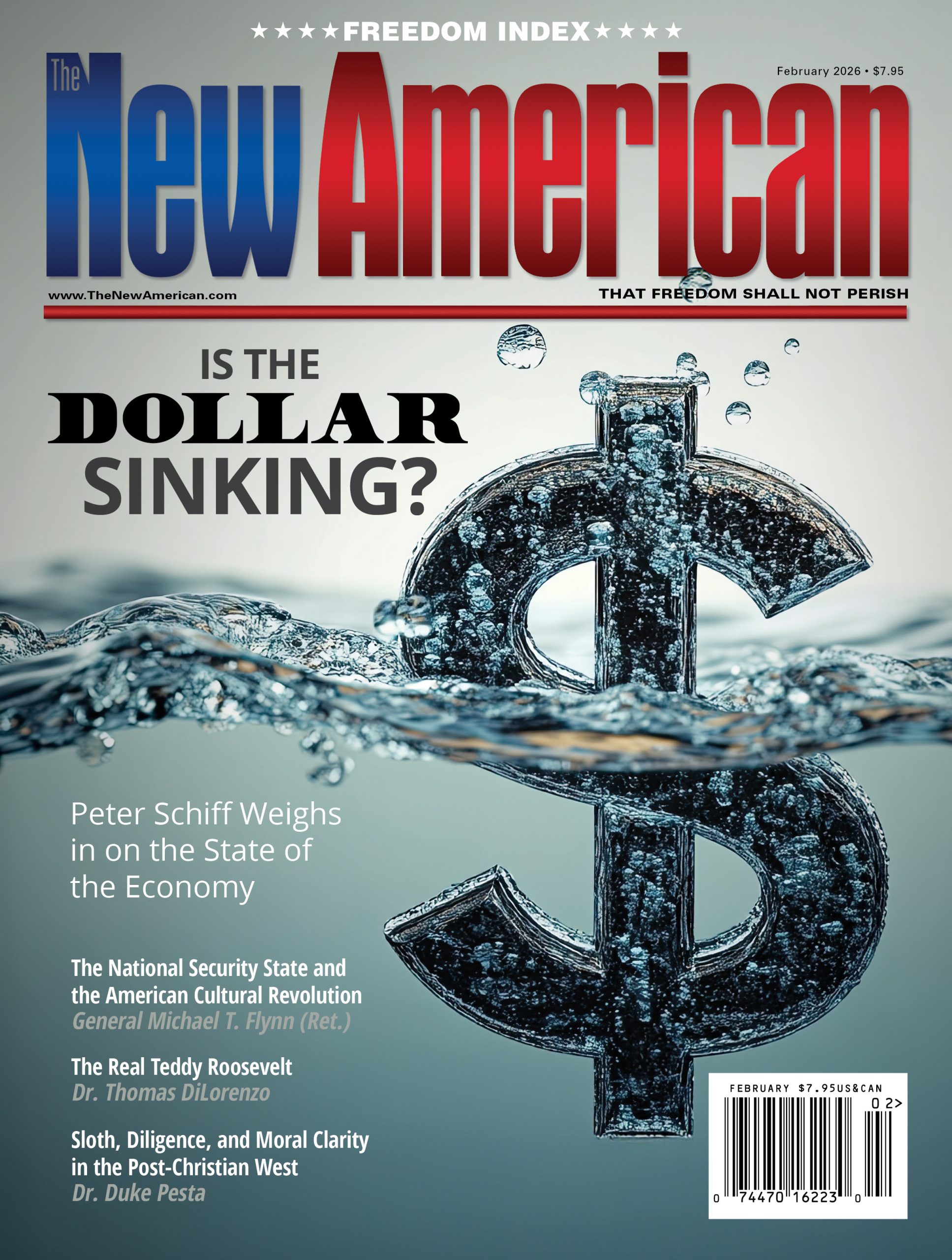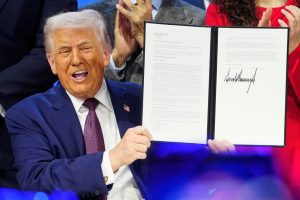
Awareness of Bilderberg Cabal Explodes in 2011
Bilderberg, named after the Dutch hotel where members first met in 1954, brings together some of the most influential figures on Earth. More than 120 top-level officials in government, banking, media, finance, business, think-tanks, armed forces, and even European royalty attend the confab every year.
Among the confirmed 2011 European and Canadian attendees were the British Chancellor of the Exchequer (“in his official capacity,” according to the Treasury), the President of the European Central Bank, the head of Canada’s central bank, the queens of the Netherlands and Spain, the Crown Prince of Norway, a representative of the unimaginably vast Rothschild banking empire, finance ministers, heads of state, and many more.
A reporter on the scene for the U.K. Guardian said there were also individuals in attendance who were not on the official list — a regular occurrence discovered almost every year. Among them were German Chancellor Angela Merkel, NATO Secretary-General Anders Rasmussen, and Socialist Prime Minister José Luis Rodríguez Zapatero of Spain. Microsoft founder and multi-billionaire Bill Gates was reportedly spotted as well.
A handful of non-Westerners also attended, including Turkish business moguls and members of the political class in Turkey. A senior representative of the brutal Communist dictatorship ruling mainland China was there as well. So was a Russian oligarch.
More than two dozen prominent members of the American elite attended, too. An especially interesting cadre at the 2011 event included some of the masters of the internet world: The co-founder of Facebook; the executive chairman of Google; the co-founder and executive chairman of LinkedIn; the founder and CEO of Amazon.com; the commander of the American military’s “cyber command” (or USCYBERCOM); Microsoft’s Chief Research and Strategy Officer; and others.
Representatives of the non-digital American elite were out in force as well. Among them were former Ghaddafi adviser and Bush-era neo-con extraordinaire Richard Perle; billionaire David Rockefeller, who openly boasted in his autobiography of conspiring to erect a global political and economic system; Robert Rubin, former Treasury Secretary and current co-chairman of the immensely powerful, world-government-promoting Council on Foreign Relations; the vice-chairman of Citigroup; TV personality Charlie Rose; former Secretary of State Henry Kissinger, who frequently and publicly calls for what he refers to as a “New World Order”; the president of the World Bank; and others.
Top officials in the Obama administration were also there including — quite ironically — the Assistant Attorney General for Antitrust. Deputy Secretary of State James Steinberg and Director of the National Security Agency (NSA) Keith Alexander were also on the official list, as were former Federal Reserve and military chiefs. Not on the public list but spotted at the conference, according to unconfirmed reports from correspondents in St. Moritz, was Secretary of Defense Robert Gates.
By any objective standard, a meeting of over 120 of the world’s most powerful individuals would seem to be extraordinarily newsworthy. But until recently, the confab rarely attracted even a passing mention in the establishment press. The eerie silence fueled deep suspicion and innumerable theories about what the group may be plotting in secret. This year, however, was different, at least in terms of media coverage.
In a story picked up by numerous large-circulation U.S. newspapers including the Washington Post, for example, the Associated Press wire service described the June 9-12 event as a “secretive gathering of senior government officials and business executives … that some liken to a shadow world government.” CNBC, Forbes, Fox News, the Baltimore Sun, Time magazine and others also ran stories about Bilderberg.
In China, the media were buzzing with news of the conference, too. One Chinese-language report by the French wire service AFP referred to the group as the “mysterious world shadow government” in a headline, according to Google Translate. Chinese media behemoth United Daily News ran a similar headline for another Bilderberg article.
European and Russian news outlets offered unprecedented levels of coverage as well, with the Guardian newspaper and the TV network Russia Today both sending correspondents to the scene. Several alternative-media outlets including the American Free Press and InfoWars sent reporters, too. And the Swiss press in particular has been overflowing with reports on Bilderberg for over a week.
Analysts speculated that the so-called “mainstream media” establishment — which is rapidly losing its market share as news consumers increasingly turn to alternative sources — was essentially forced to cover the conference in an attempt to salvage what remains of its credibility. But despite the increased attention, in one segment of the establishment press, news of the event was conspicuously missing.
Among the confirmed 2011 Bilderberg attendees were representatives of more than a few major media firms: the editor-in-chief and two correspondents of the Economist magazine; the chief international correspondent of Germany’s Die Zeit newspaper; the editor-in-chief of Helsingin Sanomat, Scandinavia’s largest daily subscription publication; a political columnist for the Dutch paper NRC Handelsblad; the CEO of Portuguese media giant Impresa; and more. None of those “news” outlets had covered the Bilderberg conference by press time on June 12.
There was, however, at least one notable exception. The CEO and publisher of Standard Medien AG, an Austrian media conglomerate, was also among those present at the Bilderberg summit. And one of his firm’s online portals, derstandard.at, reported the fact that Austria’s head of government, Federal Chancellor Werner Faymann, was in attendance.
A rival political party was apparently upset about the nation‘s Chancellor attending the meeting, even demanding an “intelligence” report about the conference from Faymann upon his return. So, not covering the growing scandal might have been raised serious questions about the integrity of Standard Medien among Austrian news consumers.
But even with the burgeoning Bilderberg coverage, critics still complained that the amount of media surrounding the conference was insufficient — especially considering the magnitude of the news. Other analysts noted that much of the “mainstream” coverage focused on downplaying the significance of the event or attempting to demonize critics.
But progress is certainly being made. While it would be impossible to calculate exactly how many people around the globe learned of Bilderberg’s existence over the past week, it’s safe to assume the number is in the millions — possibly tens or even hundreds of millions.
In recent years, authors, researchers, and the so-called “alternative media” have increasingly been spreading information and news about the cabal through the Internet. And not even including the new-found press coverage, the online exposure appears to have dramatically increased awareness about the confab.
Hundreds of protesters and critics from all across the political spectrum descended on St. Moritz to lambaste the elite attendees. They held up anti-Bilderberg signs and blasted their opposition through bull horns around the perimeter of the luxury Suvretta House hotel throughout the whole four-day gathering.
On the first day of the conference, along with a bogus “bomb” scare, a giant wall of curtains was erected around the edge of the Bilderberg compound. Presumably it was designed to keep protesters from looking in and conference attendees from being forced to see the growing crowd outside.
But at one point, angry protesters did get a chance to shout at some heavily guarded members of the elite in a face-to-face confrontation. During a “nature walk” outside the hotel, one activist even had a brief exchange with Thomas Enders, the CEO of Airbus. “We are just making our agendas,” Enders responded to a question about what was being discussed behind closed doors with politicians. “I don’t have to tell you, and you don’t need to know,” he arrogantly explained with a smile on his face.
Several lower-ranking members of the political class made a fuss about the event as well. Italian member of the European Parliament Mario Borghezio, for example, attempted to force his way into the conference on the first day. He was reportedly detained and roughed up by police, prompting the Italian embassy in Switzerland to demand answers.
Prominent Swiss politicians were furious about the gathering, too. Center-right Parliamentarian Dominique Baettig of the nation’s largest political party, for example, asked prosecutors to consider arresting attendees such as former U.S. Secretary of State Henry Kissinger for war crimes, suggesting that Swiss officials at the event should be charged with treason. Baettig, too, tried unsuccessfully to barge in on the conference in what the Guardian‘s Charlie Skelton called a “historic moment.”
Some Bilderberg opponents have also suggested arresting U.S. attendees, citing the Logan Act. That law prohibits Americans from negotiating policy with foreign officials.
Regular Bilderberg attendee and former International Monetary Fund (IMF) boss Dominique Strauss-Kahn, another socialist, was recently arrested in New York on unrelated sex charges. But calls to prosecute various Bilderbergers for a wide range of criminal offenses are only growing louder.
Critics of the confab are, of course, routinely derided as conspiracy “theorists” or worse by establishment apologists. The government-funded BBC recently ran a vicious smear piece against people suspicious of Bilderberg, trying to link opposition to secret meetings of global policy makers with anti-Semitism and other unsavory associations.
But leaks and public statements by attendees over the years — reported on by the BBC, ironically — reveal that the cabal was instrumental in more than a few world-changing occurrences. The continental super-state known as the European Union and the failing regional “euro” currency, for example, are just a few of the developments in recent decades attributed to Bilderberg.
Anecdotal evidence also suggests the group plays an important part in the seemingly unexplainable rise to power of national leaders. Bill Clinton, for example, attended the conference in 1991 as a virtually unknown state governor. The following year he became President. Then-presidential candidate Barack Obama was reportedly there in 2008. British Prime Minster David Cameron and former PM Tony Blair both went to Bilderberg before rising to the top as well. So did a multitude of global power brokers too long to list.
Due to the tight secrecy, speculation about what may have been on the 2011 agenda is, as always, running rampant. But a press release posted on the relatively new “official” Bilderberg website cited by the AP and others offered some generalities about the topics of discussion: the euro, challenges for the EU, social networking, “security issues,” the Middle East, “demographic challenges,” China, and more. In 2007, “The New World Order” was the top item on the agenda.
“What is unique about Bilderberg as a forum is the broad cross-section of leading citizens that are assembled for nearly three days of informal and off-the-record discussion,” the group’s public statement notes, claiming that the “privacy of the meetings … has no purpose other than to allow participants to speak their minds openly and freely.” Critics of the shadowy cabal, however, still aren’t buying it.
Photo: Hotel Suvretta House
Related article:




